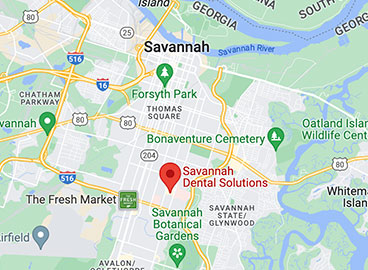Toothaches can range from minor discomfort to severe pain and are often a sign of underlying dental issues. While tooth pain is commonly associated with cavities, it can also indicate gum disease, a cracked tooth, or even an infected tooth. Understanding the symptoms of toothache and knowing when to see a dentist can help prevent more severe complications.
Common Symptoms of Toothache
Toothache symptoms vary depending on the cause but may include:
- Throbbing Pain: Persistent or sharp pain that worsens when chewing or biting.
- Jaw Pain: Discomfort that radiates to the jaw, ear, or neck.
- Swelling and Redness: Inflammation around the affected tooth or gums.
- Sensitivity to Temperature: Pain when consuming hot or cold foods.
- Bleeding or Discharge: Indication of an infected tooth or gum disease.
Minor toothaches may come and go, but they can worsen if untreated. If you notice any of these symptoms, it’s essential to see a dentist for an accurate diagnosis and prompt dental treatment.
Causes of Tooth Pain
Several dental issues can cause tooth pain, including:
- Tooth Decay: Cavities that penetrate the enamel and reach the inner layers of the tooth, causing pain and sensitivity.
- Gum Disease and Periodontal Disease: Infections in the gums that can cause swelling, bleeding, and toothache symptoms.
- Cracked Teeth or Broken Tooth: Damage from injury or teeth grinding, leading to sharp pain when chewing.
- Infected Tooth: Bacterial infections affecting the blood vessels and nerves, often requiring root canal treatment.
- Wisdom Teeth: Impacted or misaligned wisdom teeth can cause severe pain and pressure on surrounding teeth.
When to See a Dentist
If you experience severe pain, swelling, or throbbing pain that doesn’t go away, it’s crucial to see a dentist immediately. Ignoring toothache symptoms can lead to complications such as abscesses, infections, or tooth loss. Additionally, if you notice discharge, bleeding, or signs of gum disease, seek immediate treatment to prevent the infection from spreading.
Treatment Options for Toothache
Treatment depends on the cause of the tooth pain:
- Dental Fillings: For cavities and minor tooth decay, a dentist may place a filling to restore the tooth.
- Root Canal Treatment: Required for an infected tooth affecting the blood vessels and nerves. This procedure cleans the infection and seals the tooth to prevent further damage.
- Tooth Extraction: Necessary for severely damaged or impacted wisdom teeth that cannot be saved.
- Dental Crowns: Used to restore cracked teeth or a broken tooth, protecting it from further damage.
- Gum Disease Treatment: Scaling and root planing to remove plaque and bacteria from below the gum line.
Managing Pain and Discomfort at Home
While waiting for dental treatment, there are ways to manage tooth pain at home:
- Pain Relief Medication: Over-the-counter pain relievers can help manage throbbing pain and discomfort.
- Cold Compress: Applying a cold compress can reduce swelling and numb the pain.
- Salt Water Rinse: Gargling with warm salt water can help relieve minor toothaches and reduce bacteria.
These are temporary measures and should not replace a visit to the dentist.
Preventing Toothache and Tooth Decay
The best way to prevent toothache symptoms is through good oral hygiene and regular dental check-ups. To protect your teeth:
- Brush Properly: Use fluoride toothpaste and a soft-bristled toothbrush to clean all surfaces.
- Floss Daily: Remove food particles and plaque between teeth to prevent tooth decay.
- Avoid Sugary Foods: Reduce sugar intake to minimize the risk of cavities.
- Visit the Dentist Regularly: Schedule check-ups and cleanings every six months for early detection of issues.
Complications of Untreated Toothaches
Ignoring tooth pain can lead to serious complications, such as:
- Abscesses: Infections that form pockets of pus around the tooth root or gums.
- Damage to Surrounding Teeth: Tooth decay can spread to neighboring teeth if untreated.
- Bone Loss: Advanced periodontal disease can lead to jawbone deterioration.
- Systemic Infections: Infections from an infected tooth can enter the bloodstream, causing severe health issues.
Don’t Ignore Toothache Symptoms
Tooth pain should never be ignored, especially if accompanied by swelling, bleeding, or throbbing pain. Early diagnosis and dental treatment can save your tooth and prevent complications. If you experience any symptoms of toothache, see a dentist promptly for a thorough examination and the appropriate treatment. Regular dental visits and good oral hygiene are key to maintaining healthy teeth and gums, preventing tooth decay, and avoiding the discomfort of toothache.
Savannah Dental Solutions
Drs. Chad and Alexandra Schnabel
9A Medical Arts Center
Savannah, GA 31405
Phone: (912) 354-1366
Website: SavannahDentalSolutions.com







